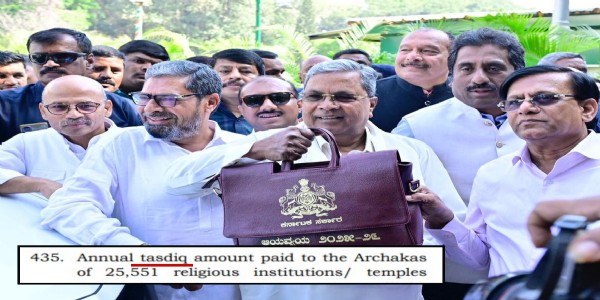Karnataka law preventing demolition of religious structures on govt property comes into effect
Karnataka"s new law prevents the demolition of religious structures in public places
Total Views | 80
Bengaluru, October 25: Karnataka government's Religious Structures (Protection) Act, which was passed by assembly with an objective to protect "religious constructions on a public place", has come into effect following the approval from Karnataka Governor Thaawarchand Gehlot. It has now been published in the Karnataka Gazette notification.

The Basavaraj Bommai-led BJP government introduced the Bill on September 21 after the demolition of a temple in Nanjangud in Mysuru. It was passed just one day after it was proposed and then tabled in the lower house of the ongoing monsoon session of the state assembly.
The bill primarily provided protection to all religious structures that came up on public land before the law comes into force. It means that the authorities would not be able to demolish religious structures on public land unless there is a specific court order for demolition of a religious structure, reading of the bill shows.
"Notwithstanding anything contained in any law for the time being in force or any judgment, decree or order of any court, tribunal or authority from the date of commencement of this Act, subject to the provisions of this Act, or the rules made there under the government shall protect the religious structures existing on the date of commencement of this Act, in such manner subject to such conditions as may be prescribed: Provided that no protection shall be done, if any case relating to their removal is pending in any court of law and such other circumstances as may be prescribed," the new law stated.
Also read | Karnataka Congress put derogatory Tweet against PM Modi, deletes it later and pins blame on 'Novice'
The Act also bars the construction of any religious structures in public places by the government or local authority without proper permission in the future. It further says that the district administration may allow religious activity in such protected structures, subject to custom, law, usage, and any other conditions as may be laid down by the state government from time to time.
The law gives protection to the state government as well as its officers or employees with the provision that no legal proceeding should lie against them for anything which is done or intended to be done under this Act or rules made thereunder.
.
.





